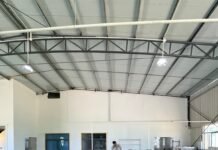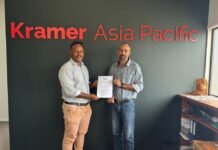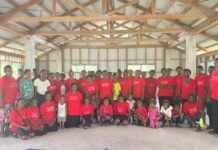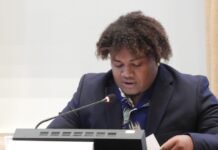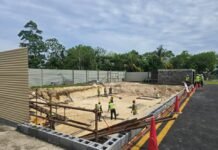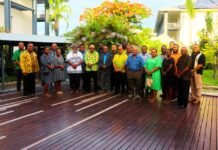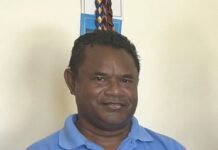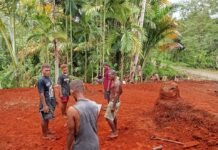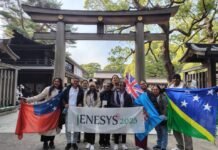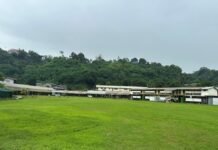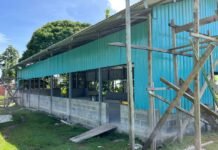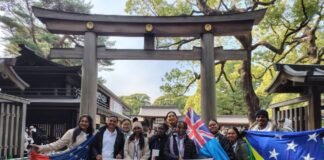
JAPAN’S Minister of Foreign Affairs, Mr. Hayashi Yoshimasa made a fruitful one-day visit in Honiara on Sunday 19th March as part of his Pacific Tour that includes Cook Islands.
The trip was historic as Hon Hayashi Yoshimasa is the first Foreign Minister from Japan to visit the Solomon Islands since bilateral relations between the two countries was established on 1st September 1978.
Minister Hayashi met with his Solomon Islands counterpart, Hon. Jeremiah Manele in a Bilateral meeting on Sunday, where Minister Manele said Solomon Islands remains a close friend of japan and looks forward to strengthening the good relations between the two states.

He acknowledged the development support received from Japan which now includes, the Kukum Highway Project Phase 2 (worth SBD 243m), Japanese Emergency Loan Extension: For Economic Stabilization and Development Efforts regarding COVID 19 (SBD 190 Million) and the Project for the Improvement of the Honiara International Airport.
He also mentioned the support received during the pandemic, and would like to see similar support by Japan for a proposed center for disease control in the Solomon Islands.
Apart from the Bilateral discussions with Minister Manele, Minister Yoshimana paid a courtesy visit to the Prime Minister Sogavare, Foreign Minister Yoshimasa also paid tribute to Japan’s war memorial on Mount Austin to honour those who have perished during the second world war more than 80 years ago.
Minister Yoshimasa also visited the Forum Fisheries Agency headquarter and was briefed on the operations of the Agency’s Fisheries surveillance set up. Japan is among countries that have invested so much in the fishing industry within the region and it gives them comfort to know that the industry is regulated.
Apart from Japan’s involvement in the fishing industry, another issue looks at the legacy of Unexploded Ordinance (UXO) and its effects in the Solomon Islands. The Minister was taken on a site tour of the Hells Point, where the RSIPF Explosive Ordnance Disposal (EOD) team are based and where countless explosives are being kept and cleared.
The issue of UXO has been a topic of discussions between, Minister Yoshimasa and Hon. Manele, with the latter highlighting the challenge of dealing with UXO that continues to claim lives of Solomon Islanders and a threat that continues to increase the cost of construction in the country.

Minister Manele said Solomon Islands places enormous importance on UXO clearance.
He therefore acknowledged the ongoing support by the Governments of Japan and the United States to remove UXO which would in turn increase accessibility to land for development, and other uses that would support economic prosperity of the people, and nation.
“The Solomon Islands looks forward to continuing collaboration on this issue,” he exclaimed.
On the issue of dumping of treated nuclear water into the Pacific Ocean, the Minister registered Solomon Islands concern on the proposal and stressed that Solomon Islands will be guided by science on the matter and continue to support the intensification of dialogue and consultation between the Pacific Islands Forum Panel of Scientists and Japan including with IAEA.
Solomon Islands remains a nuclear free state and is a signatory to the Rarotonga Treaty.
On security, Minister Manele reiterated Solomon Islands firm position in focusing on its domestic risks and threats ‘under our friends to all, enemies to none policy’ and will not participate in power politics.
Minister Manele further stressed that Solomon Islands supports diplomacy over conflicts and it is worried the billions of dollars spent on military equipment is taking the world’s attention away from combating climate change and commitment to the development agenda.







